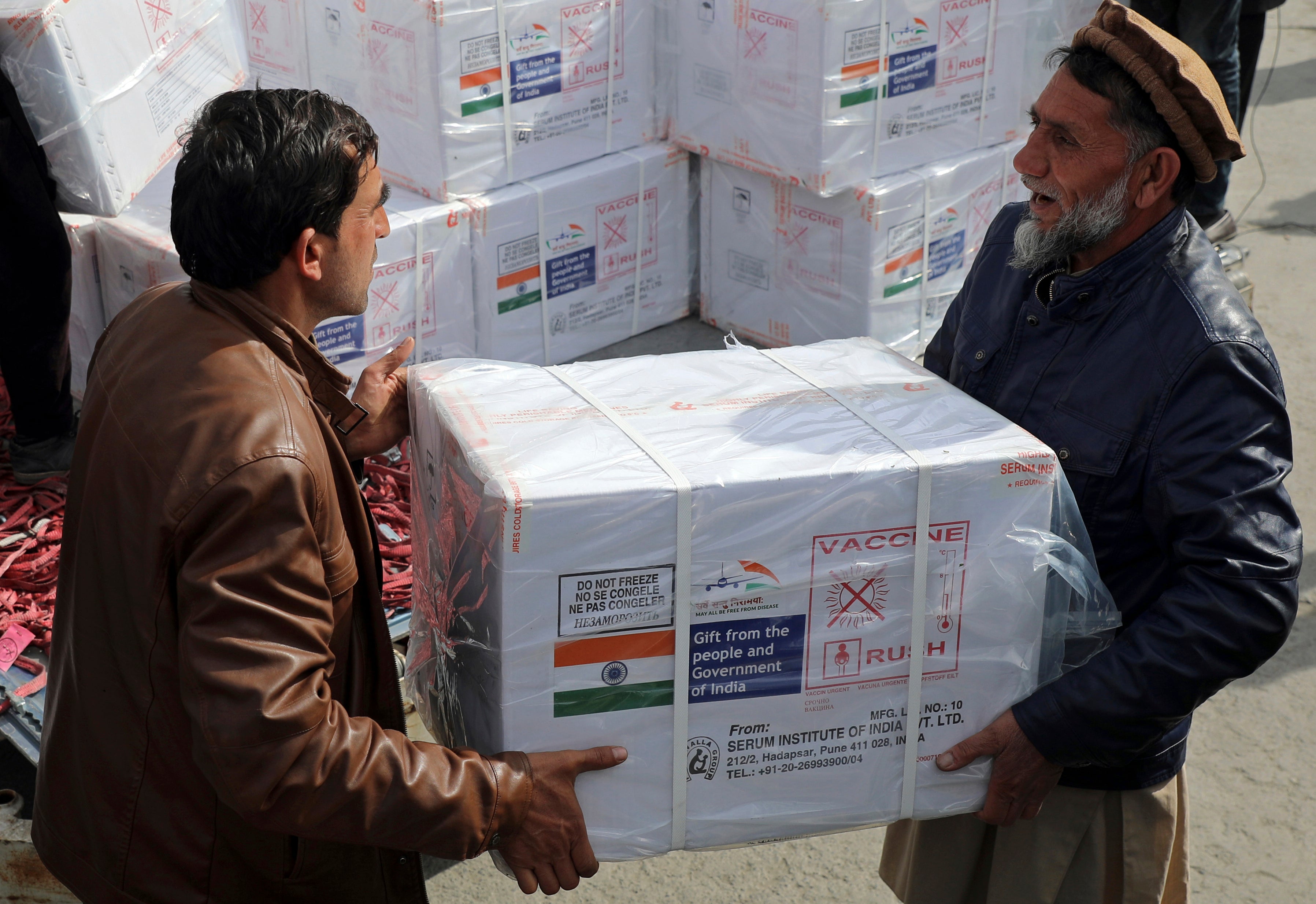India, Central Asian leaders discuss aid to Afghanistan
India and five central Asian countries have decided to set up a joint working group for providing aid to Afghanistan to tackle the humanitarian crisis and the issue of recognition of the Taliban

Your support helps us to tell the story
From reproductive rights to climate change to Big Tech, The Independent is on the ground when the story is developing. Whether it's investigating the financials of Elon Musk's pro-Trump PAC or producing our latest documentary, 'The A Word', which shines a light on the American women fighting for reproductive rights, we know how important it is to parse out the facts from the messaging.
At such a critical moment in US history, we need reporters on the ground. Your donation allows us to keep sending journalists to speak to both sides of the story.
The Independent is trusted by Americans across the entire political spectrum. And unlike many other quality news outlets, we choose not to lock Americans out of our reporting and analysis with paywalls. We believe quality journalism should be available to everyone, paid for by those who can afford it.
Your support makes all the difference.India and five central Asian countries on Thursday decided to set up a joint working group for providing aid to Afghanistan to tackle the humanitarian crisis and the issue of recognition of the Taliban an Indian official said.
India’s Prime Minister Narendra Modi hosted a virtual summit with leaders of Kazakhstan, Kyrgyzstan, Tajikistan, Turkmenistan and Uzbekistan.
India and China are competing for influence in the region. Chinese President Xi Jinping on Tuesday chaired a similar virtual summit with leaders of Kazakhstan, Tajikistan, Turkmenistan and Uzbekistan to build even closer ties, China’s official Xinhua news agency reported.
A joint declaration after Thursday's summit said there was a broad regional consensus on the issues related to Afghanistan, which includes the formation of a “truly representative and inclusive government,” combating terrorism and drug trafficking and preserving the rights of women, children and national ethnic groups and minorities.
Modi and the five leaders also agreed to set up another joint working group to develop Chabahar port in Iran to provide sea access to landlocked countries, Reenat Sandhu, secretary in the Indian External Affairs Ministry, told reporters in New Delhi.
Afghanistan and Central Asian countries lack overland connectivity with India, which has invested in developing and running Chabahar port to promote trade in the region.
India is keen to make Chabahar, Iran’s closest sea link to the Indian Ocean, a rival to Gwadar, some 80 kilometers away (50 miles) across the border in Pakistan, which Pakistan has been building with Chinese investment. Pakistan doesn't allow India to use its land route to reach Afghanistan and Central Asian countries following the heightening of tensions since Modi came to power in 2014.
India recently committed up to $500 million for the development of Chabahar port along with associated roads and rail lines.
India also has provided a $450 million credit line to Uzbekistan for developing roads, a sewerage system and the information technology sector. In 2020, India announced a $1 billion credit to five Central Asian countries to pursue priority projects in connectivity, energy, IT and health care, India's External Affairs Ministry said.